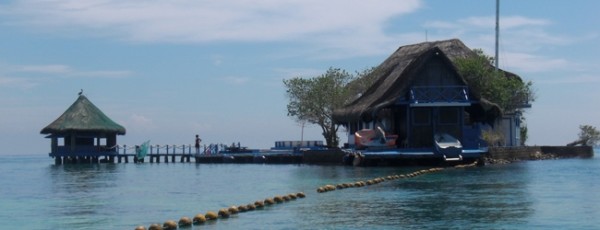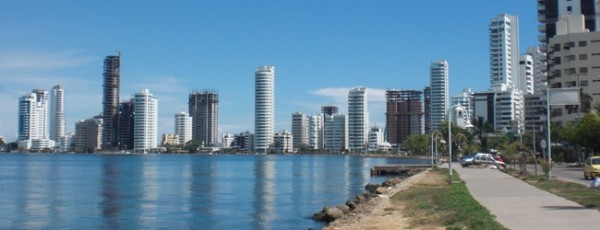Colombia makes plans to boost location filming appeal
When I tell friends about my next trip to Colombia, it is not unusual for those who have never visited to say “Be careful!” or even throw in the classic joke “Make sure you don’t get kidnapped!” But for those who have already visited the country their reaction is usually only one of awe and envy.
Colombia is indeed a country to envy. It is consistently managing to reduce its internal conflicts, instil economic growth, advance its urban planning and gradually improve the lifestyles of the poor. The country has also been on the forefront in Latin America for many things such as having the first constitutional Government and the first chamber of commerce in South America, the first to sign the Nagoya Protocol on biodiversity and the first to legally recognise gay couples despite its widespread machismo attitude.

A sense of personal and political freedom thrives in Colombia and this might have something to do with why Colombia has often scored positions in the top three ‘Happiest Nations’ in foreign surveys. The country still has many challenges ahead but for visiting filmmakers looking for a good experience they only discover, as the New York Times called it, ‘one of the planet’s best-kept secrets’.
In 2010 the Times named Colombia as one of the 31 countries that must be visited. The diversity of locations is amazing, ranging from tropical beaches to deserts, mountains, green countryside, jungle and modern and old streets. But what makes Colombia even more special is its people, their friendliness and their genuine spirit to help. I must say this was by far my most lasting impression on Colombia since my first recce.
One studio executive in Los Angeles known for his obsessive focus on countries that offer him the best return for his dollar has already visited Colombia. He in fact remains in personal contact with Colombian President Juan Manuel Santos, who is determined to make Colombia a leading film destination. The executive said he is waiting for the incentives to be ratified first before shooting there but he “cannot wait” to catch a plane to Colombia. He goes further to say that it’s the people that drew him in when he first visited. Their enthusiasm to help in any way they can, their genuine friendliness and their pride to do the best job possible is what makes Colombia stand out from its toughest competitors.

It helps when a country’s president personally makes it his mission to boost the film industry. From a recent meeting with President Santos in preparation for a difficult movie it is obvious that he wisely recognises that international films coming to his shores have wider benefits than simply boosting economic activity during production.
The PR generated by foreign films with international distribution will have an invaluable effect on proving to the world that Colombia is indeed a safe country and a beautiful one also. For President Santos it is clearly a case of instilling more pride in his people and securing more tourism and foreign investment.
Those who fear the actions of the paramilitary groups often do not know that Colombia is a massive country divided by virtual and patrolled borders. The Farc is mainly operational in the jungle, in an area that is still called Colombia for geographical reasons but almost another country as far as Colombians are concerned when talking about their safety.
In 2013 foreign films will be able to benefit from an incentive that averages out to around 30% of the local spend.
In 2013 foreign films will be able to benefit from an incentive that averages out to around 30% of the local spend. It is a cash rebate rather than a tax credit, so no reductions or significant hidden costs should be feared.
One big asset to Colombia is its home-grown industry. It’s small but strong and helps maintain a strong crew base. As much as 80% of its crew can be from Colombia, depending on the timing of the shoot. Colombian investors already benefit from a 41.25% tax credit for funding Colombian films.

The pool of talented actors is very extensive thanks to the country’s long experience of making first-class tele-novelas for Colombia and some 30 other countries. Rupert Murdoch’s Fox corporation has a majority stake in one production house there. In 2006 Love in the Time of Cholera found over 80 of its cast from Colombia.
Some Colombian features are also finding international distribution. Foreign sales agents are always looking for Colombian films as they are frequently discovering some ‘hot directing talent’. Meanwhile, some successful Colombian films are having their rights bought or optioned by US producers for remakes on a bigger scale.
In the world of film servicing, this massive country has a lot to offer but of course it is still very fledgling in its servicing experience with sizeable foreign shoots.
In the world of film servicing, this massive country has a lot to offer but of course it is still very fledgling in its servicing experience with sizeable foreign shoots. There are several local service companies growing in anticipation of the influx of foreign work. It will take time for many of them to become first-class service companies which can truly manage multi-million dollar productions as they already do for example in Hungary or Cape Town, but the energy and enthusiasm is certainly there and that’s already a very good start. Also some of these companies are first and foremost filmmakers in their own right before becoming service providers, so they are usually very willing to engage creatively in the production process. Not a bad mix.

Once the incentives fall into place Colombia will most likely see a substantial increase in low to medium budget films that seek high production values coupled with cost-efficiency. The Colombian film office and related Government agencies will likely feel the need to increase their staff and gear up for the big wave that is about to hit them.
Related Posts
- Filming on location in Colombia with the Colombian Film Commission
- Lincoln Lawyer producer shouts out for filming incentives in Colombia
- A turning point for the Maltese film industry
- Colombia approves new 40% cash rebate to boost location filming
- On location with Karina Moreton, Managing Director of Panoramic Fixers
- Interview with Steve Solot, Executive Director of the Brazilian Film Commission Network
- Pablo Escobar Netflix miniseries Narcos films Colombia
- From Transformers to Louis Vuitton: Filming on location in Cambodia
Related posts:
Comments
Not Logged in
You must be logged in to post a comment
There are no comments